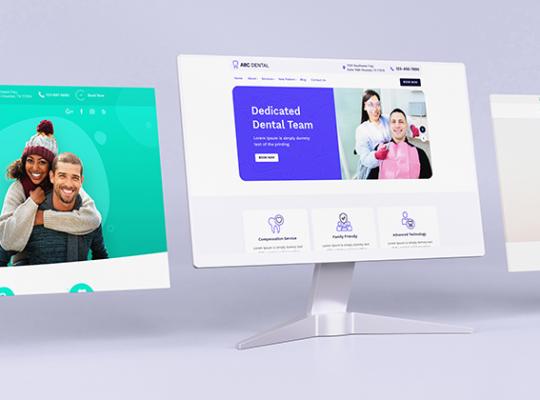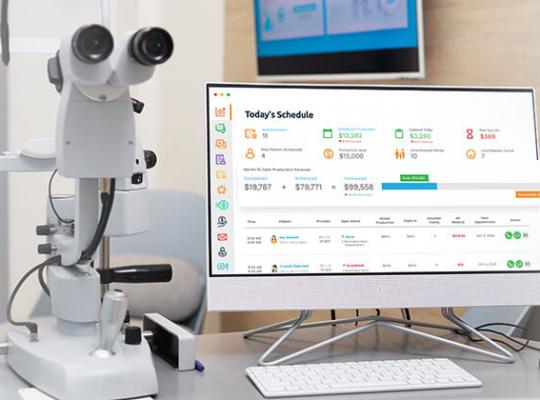Surviving Economic Downturns: Strategies to Protect Your Dental Business

The global economy has experienced significant uncertainty in recent years, impacting businesses across various industries, including dentistry. Dentists have faced unique challenges as they strive to maintain stability amidst unpredictable economic landscapes.
In the face of economic slumps, dental professionals must be proactive about safeguarding their practices to ensure long-term success. Research has shown that such periods can significantly impact dental organizations, leading to a decrease in patient volume by up to 30%. However, by adopting strategic approaches and implementing effective measures, dental professionals can protect their practices and navigate economic fluctuations with resilience.
Deep Dive: Economic Challenges Impacting Your Dental Practice

The economics of a dental practice is influenced by a myriad of factors that can shape its financial success. From the location and size of the clinic to financial knowledge and business management skills, these variables play a crucial role in determining profitability.
When local or national economies start to sink, several challenges can either help your practice sink or swim.
Challenge #1: Patient Volume and Treatment Acceptance Drives the Majority of Your Business

The dental industry is indeed highly dependent on patient volume and treatment acceptance rates. Dental practices rely on a consistent flow of patients seeking essential and non-essential dental treatments to sustain their financial stability.
However, during economic downturns or crises, such as recessions or financial hardships, patients often face financial constraints that lead them to delay or forgo non-essential dental treatments. This reality has proven true, time and again-- just consider the COVID-19 pandemic shutdowns where at one point, just 3% of dental offices remained open for emergency appointments only in April of 2020.
In times of economic uncertainty, individuals and families tend to prioritize spending on essential needs such as housing, food, and healthcare. As a result, dental care is sometimes seen as discretionary or non-urgent and gets deprioritized. Patients may postpone cosmetic procedures, elective treatments, or other non-emergency dental services to save money or allocate their limited resources elsewhere.
The reduction in patient visits and treatment acceptance rates during these challenging periods can significantly impact the revenue streams of dental practices. With fewer patients seeking dental care, the income generated from procedures and treatments decreases, putting financial strain on dental practices. This situation has a ripple effect, leading to difficulties in meeting operational costs, paying staff salaries, investing in new equipment or technologies, and maintaining the overall viability of the practice.
Solution
Combat the challenges posed by reduced patient volume and treatment acceptance rates by implementing strategic measures before they're necessary. Focus on improving patient education about the importance of regular dental care and the potential consequences of delaying treatments. Offering flexible payment options, such as installment plans or partnering with dental financing companies, can also help alleviate financial burdens for patients and encourage them to proceed with necessary treatments.
Moreover, evaluate cost structures, streamline operations, and seek opportunities to enhance efficiency while maintaining quality care. Exploring collaborations with dental insurance providers, promoting preventive care and wellness programs, and leveraging digital marketing strategies can also aid in attracting and retaining patients during uncertain times.
By implementing proactive measures to address patient concerns and adapting their business strategies, dental practices can strive to maintain financial stability even in challenging times.
Oviedo Dental Arts grows new patients by 25% after switching to Adit’s all-in-one Platform Looking to fill schedules, cut manual work, and boost production? With Adit’s all-in-one platform, Oviedo Dental Arts now...
Download Case StudyChallenge #2: Limited Financial Planning and Business Management Knowledge

Dental professionals play a crucial role in providing oral healthcare to their patients but often encounter challenges in financial planning and business management. Dental education and training primarily concentrate on clinical skills, leaving practitioners with limited exposure to the business side of their careers. This blindside can leave them lacking the necessary knowledge and expertise to effectively navigate economic crises, such as building financial reserves or implementing cost-saving measures.
Financial planning encompasses various aspects, including budgeting, forecasting, tax planning, and retirement planning. These skills are essential for dentists to establish a solid financial foundation and ensure the long-term sustainability of their practices. A strong grasp of financial concepts is a must when making informed decisions regarding investments, practice expansions, or hiring additional staff. Your office may also miss opportunities to maximize profits or manage debt effectively.
Similarly, business management skills are vital for dental professionals to run efficient and successful practices. Your team should understand marketing strategies, patient acquisition and retention, human resources management, and general operations. In the absence of this knowledge, attracting and retaining patients, optimizing practice workflows, and effectively managing staff become difficult.
Some may also find it challenging to adapt to economic crises without these skills. During times of economic downturns, dental practices can experience significant financial strain. Without the ability to proactively prepare for such events, financial instability and practice closures are inevitable.
Solution
To address these limitations, dental professionals can benefit from additional education and resources focusing on financial planning and business management. Continuing education courses, workshops, and seminars specifically designed for different team roles can provide valuable insights and practical strategies to quickly pivot financial processes and policies, business growth, and crisis management.
Consider joining related dental associations and organizations to support your practice further. These groups offer resources, mentorship programs, and networking opportunities that foster business acumen and financial literacy.
Challenge #3: Limited Resources Can Pose Additional Challenges

The nature of dental practices as small businesses with limited resources can indeed present unique challenges. Dental offices typically operate on tight profit margins, making it difficult to allocate substantial funds towards areas such as building financial reserves or investing in technology and business management systems. These limitations can further exacerbate the hurdles faced by dental practices, particularly during economic downturns.
One of the primary challenges clinics face is the struggle to establish and maintain financial reserves. Smaller practices typically have limited resources, requiring a lean and mean financial strategy to reserve a significant amount of money for emergencies or unexpected events. Without an adequate reserve, your practice may find it challenging to navigate these situations and experience disrupted operations.
Of course, investing in technology and modern business management systems greatly enhance the resilience of most dental offices. However, due to financial constraints, how can they make substantial investments in these areas?
Solution
Technology plays a crucial role in improving the efficiency and effectiveness of dental operations, ranging from advanced imaging and diagnostic equipment to digital record-keeping systems and appointment management software. Implementing such technologies can streamline workflows, enhance patient care, and boost overall productivity. This translates into increased and consistent cash flow in the long run.
Similarly, adopting a robust practice management system like Adit can help with day-to-day tasks such as inventory management, billing, and patient scheduling. All of these contribute to patient retention, treatment compliance, overhead reduction, and satisfaction, creating that financial cushion your practice needs.
These investments should be a top priority when finances are healthy because they allow you to be proactive about your operations. Instead of waiting to implement leaner, more agile business strategies when the economy is struggling, your practice can increase growth and revenue early on so financial downturns won't bite your bottom line so hard.
Challenge #4: Economic Shifts are Unpredictable and Rapid

Economic crises, such as the recent COVID-19 pandemic, have vividly illustrated the sudden and unprecedented nature of disruptions that can severely impact dental practices worldwide. The speed at which these events unfold can make it extremely hard for dentists to adapt quickly and implement proactive measures to mitigate the financial impact.
Remember, during tough financial times, patients may face their own budget headaches, resulting in reduced discretionary spending and a decline in dental visits. Unemployment rates may rise, causing individuals to lose their dental insurance coverage and forcing them to postpone or forego care. This decrease in patient volume directly impacts your clinic's revenue streams.
The rapid shifts in economic conditions can also lead to fluctuating supply and equipment costs, making it impossible to accurately forecast future expenses. Even two years post-pandemic, dental offices everywhere are spending 5.5% - 6% more on such essentials. Moreover, changes in interest rates and loan availability can affect dentists' ability to secure funding for practice expansion or necessary equipment upgrades.
Another aspect that catches dental professionals off guard is the unpredictability of government regulations and policies in response to economic crises. Your office must navigate through a maze of evolving guidelines and restrictions, such as temporary closures, limited operations, or negotiating reimbursement rates for dental services.
Adapting to these changes requires dental professionals to invest time, effort, and resources into understanding and implementing new protocols, which can further strain their financial stability.
Solution
Mitigate the financial impact of economic challenges by remaining vigilant and proactive. Establishing strong financial management practices, such as maintaining a reserve fund, regularly reviewing and adjusting fee structures, and implementing cost-saving measures, can help your dental office weather economic storms.
Building strong relationships with patients and providing flexible payment options can also encourage continued dental care during challenging economic times.
Most importantly, stay informed about economic trends and developments to anticipate and respond quickly to market shifts. By actively monitoring economic indicators, such as consumer confidence, employment rates, and government policies, you can make informed decisions regarding staffing, investment, and practice growth.
Challenge #5: External Factors Beyond Your Control Affect Preparedness

Government regulations, insurance reimbursements, and patient behaviors are among the key external factors that can significantly influence the financial viability of your practice. Understanding these impacts is essential to anticipate and effectively mitigate the effects of economic downturns.
Government regulations have a substantial impact on dentistry, for example, the standardization of credentials, which increases oral healthcare access for patients across state lines. Changes in laws and regulations, such as those related to healthcare policies, licensing requirements, or reimbursement structures, can directly affect the financial stability of your practice.
Another example is the latest changes to insurance coverage mandates or Medicare reimbursement rates. These changes will significantly impact the revenue streams of dentists nationwide. Adapting to and complying with some regulations may require investing in new technology or making operational adjustments. Failure to keep up with evolving government requirements can leave dental practices vulnerable during economic crises.
Insurance reimbursements also play a significant role in determining the financial well-being of dental practices. Patient policies, coverage limitations, and reimbursement rates are often at the mercy of insurers or government agencies.
During volatile market periods, insurance companies may reduce reimbursement rates or tighten coverage restrictions, directly affecting profitability.
Patient behaviors and choices are another critical external factor impacting dentists' preparedness for economic hardships. Patients' dental care decisions are influenced by various factors, including:
- Financial situations
- Perceived importance of oral health
- Access to dental insurance
A decline in patient demand can significantly impact revenue, making it challenging for dentists to sustain their businesses. This consequence underscores the importance of understanding demographics and adapting your services and marketing strategies accordingly. Keeping patients engaged is critical during good and hard times.
Solution
While external factors beyond your control can affect the preparedness of your dental practice, there are several strategies you can implement to mitigate their impact and ensure financial viability. Here are some solutions to consider:
- Stay Informed and Engage in Advocacy
Stay updated on government regulations, policies, and industry trends. Join dental associations and professional organizations for the latest information and advocacy efforts.
- Diversify Revenue Streams
Explore alternative revenue streams to reduce dependence on insurance reimbursements. Offer additional services like cosmetic dentistry, orthodontics, or uninsured specialized treatments.
- Build Strong Relationships with Insurers
Build positive relationships with insurers. Regularly communicate about any policy changes, reimbursement rates, and billing procedures. Negotiate fair rates and advocate for appropriate coverage for your patients.
- Educate Patients and Promote Oral Health
Educate patients on oral health's importance and its link to overall well-being. Encourage regular check-ups and preventive care, and highlight the long-term benefits of good oral health.
- Embrace Technological Advancements
Stay updated with dental technology advancements and integrate tools to improve efficiency and patient care. Automation, digital records, telehealth, and other innovations streamline operations and enhance the patient experience.
Remember, while external factors may pose challenges, a proactive and adaptable approach can help you mitigate their impact.
Additional Strategies to Enhance Practice Resilience During Economic Crises

During economic crises, dental practices face unique challenges that can impact their financial stability and long-term success. To navigate these uncertain times and enhance practice resilience, dental professionals can adopt a range of proactive strategies.
The following list outlines key strategies you can employ to safeguard against economic downturns:
Implementing a Modernized Dental Practice Management Software System
Implementing a modernized dental practice management software system offers numerous benefits to dental practices, especially during economic downturns.
Consider the following advantages that Adit provides:
- Streamlined administrative tasks: The software system simplifies appointment scheduling, patient records management, billing, and insurance claims processing, reducing manual errors and improving efficiency.
- Integration with digital imaging systems: Modernized software can seamlessly capture, store, and share dental images, enhancing diagnostics and treatment planning.
- Centralized patient communication and engagement: Automated appointment reminders, online patient portals, and virtual consultations enhance the patient experience, increase convenience, and maintain patient retention.
- Robust reporting and analytics capabilities: The software provides valuable insights into practice performance, key metrics tracking, and data-driven decision-making for optimizing operations and maximizing revenue potential.
Implementing a modern dental practice management software system improves workflow efficiency, enhances the patient experience, and optimizes practice performance. It's no surprise that modern PMS platforms have quickly become an integral part of a comprehensive strategy to protect dental businesses and ensure long-term success, even in challenging economic times.
Diversifying Revenue Streams
Relying solely on a single revenue stream, such as dental services, can leave a business vulnerable during an economic downturn. Dental professionals can explore opportunities to diversify their revenue streams, thereby reducing dependency on a single source of income.
Some potential avenues for diversification include:
- Offering specialized services, such as cosmetic dentistry or orthodontics
- Expanding into related areas like dental implants or oral surgery
- Partnering with local healthcare providers to provide comprehensive healthcare packages
By diversifying revenue streams, dental practices can generate income from multiple sources, increasing their cash flow and creating a financial reserve.
Implementing Cost-Saving Measures
During an economic downturn, optimize operational expenses and identify areas for cost reduction without compromising the quality of care. Some cost-saving measures that dental business owners can consider include:
- Renegotiating supplier contracts to obtain better pricing, Exploring group purchasing options with other dental practices for volume discounts
- Adopting energy-efficient technologies to reduce utility bills
- Implementing tech-forward practice management software to streamline administrative tasks and reduce paperwork costs
- Investing in staff training and cross-training to enhance skills and productivity.
- Improve waste reduction by evaluating practices, implementing recycling programs, and optimizing inventory management to save costs and improve efficiency.
Remember, when implementing cost-saving measures, it's vital to consider the potential impact on patient care and experience. Ensure that any implemented cost-cutting initiatives are thoughtful and don't compromise the quality of care provided to your patients.
Emphasize Preventive Care and Patient Retention
While economic downturns may lead some patients to delay or forego dental treatments, emphasizing the importance of preventive care can help maintain patient retention.
But, go beyond informative pamphlets. Implementing patient loyalty programs, offering flexible payment options, and establishing strong patient communication channels can foster trust and loyalty, ensuring patients choose to stay with your practice even during economic uncertainties.
Leverage Telemedicine and Virtual Consultations
During the COVID-19 shutdown, dental offices that embraced technology were game-changers in the industry. Implementing telemedicine and virtual consultations allows your office to connect with patients remotely, provide initial assessments, offer advice, and reduce operational costs all at the same time.
By leveraging digital platforms and telecommunication tools, like Adit's Telemed feature, your practice can continuously serve its patients, generate revenue, and maintain a strong presence, when in-person visits aren't possible.
Enhance Marketing and Patient Acquisition Efforts
Attracting new patients to your dental practice should always be a top priority. Proactively boost marketing efforts, both online and offline, to increase awareness and attract potential patients. Invest in targeted digital marketing campaigns, leverage social media platforms, optimize your dental website for search engines, and consider offering incentives or promotions to entice new patients.
By maintaining a steady flow of new patients, your clinic can mitigate the impact of any loss in patient volume during an economic downturn.
Strengthen Communication and Patient Relationships
Maintaining open lines of communication with patients is crucial when the markets become volatile. Reach out to patients to inform them ahead of time about any changes in services, safety protocols, or payment options.
Establishing regular communication channels, such as email newsletters or social media updates, can help keep patients engaged and connected with the practice. Moreover, actively listening to patient feedback and addressing concerns promptly can build trust and loyalty, encouraging them to continue seeking dental care from your dental clinic.
Future-Proof Your Dental Office with Adit Practice Management Software
Economic downturns present unique challenges for dental professionals, but by implementing proactive strategies, they can protect their practices and ensure long-term success. The lessons learned from previous economic challenges, including the 2008 recession and shutdowns from the COVID-19 pandemic, further underscore the importance of these strategies.
One solution that can address these strategies on multiple fronts is comprehensive practice management software. Adit practice management software offers advanced features such as appointment scheduling, electronic health records management, billing and invoicing, automated reminders, and robust reporting and analytics capabilities.
With Adit software, it has never been easier to run an agile office. Our innovative platform uses automation and AI to streamline every aspect of your operations, boost revenue, and enhance patient communication and engagement.
Crisis-proof your dental practice and thrive in challenging economic conditions by incorporating Adit practice management software into your operations. We help your dental practice emerge stronger on the other side of these unpredictable financial storms. Our robust offering of digital tools empowers your team to respond proactively instead of reactively when economic uncertainties arise.
Check out some of the integrations and software features our dental clients can't stop raving about:
- Adit Pay
- Patient Forms
- Adit Voice
- Online Scheduling
- Appointment Reminders
- Treatment Planning
- Patient Recall
- Call Tracking
- Telemed
- Pozative Reviews
- Internal Chat
- 2-Way Patient Messaging
- Practice Analytics
- And so much more!
We help your dental practice emerge stronger on the other side of these unpredictable financial storms. Schedule your free demo today to learn more and take advantage of the features that can make a real difference in your practice when the economy sours.
more about Adit?
Say goodbye to the hassle of using multiple tools. Adit centralizes your calls, texts, payments, reviews, and scheduling into one powerful dashboard. Simplify your operations and boost patient satisfaction today.
Schedule a DemoJosh has made a career working with large DSO organizations and leveraging his extensive sales experience to build partnerships with influential doctors and organizations within the dental industry. He travels the US as an expert guest speaker in medical seminars teaching doctors how to streamline their practices with the latest technology.
Get a $25 Gift Card when you take a demo
Schedule a DemoGet a $50 Gift Card
when you take a demo
Looks like you're out of bounds!
Hey there! Your current location falls outside Adit's area of operation. If this is unexpected, try disabling your VPN and refresh your page. For further assistance or to book a live demo, connect with us at 832-225-8865.
February 15 Amazon Demo Promo
Terms and Conditions
Last Updated: February 15, 2026Offer ends February 18, 2026, and is limited to prospective customers who sign an annual agreement before February 28, 2026. Gift card will be emailed to the company owner or established representative within 4 weeks of signing the annual agreement. Offer may not be combined with any other offers and is limited to one (1) gift card per office. Offer is not available to current customers or to prospective customers or individuals that have participated in a Adit demo during the prior six (6) months. Recipient is responsible for all taxes and fees associated with receipt and/or use of the gift card as well as reporting the receipt of the gift card as required under applicable federal and state laws. Adit is not responsible for and will not replace the gift card if it is lost or damaged, is not used within any applicable timeframe, or is misused by the recipient. Adit is not responsible for any injury or damage to persons or property which may be caused, directly or indirectly, in whole or in part, from the recipient’s participation in the promotion or receipt or use of the gift card. Recipient agrees to indemnify, defend and hold harmless Adit from and against any and all claims, expenses, and liabilities (including reasonable attorney’s fees) arising out of or relating to a recipient’s participation in the promotion and/or recipient’s acceptance, use or misuse of the gift card. This offer is sponsored by Adit Communications, Inc. and is in no way sponsored, endorsed or administered by, or associated with Amazon.
Thank You!
We appreciate your interest! Adit AI will be calling you in the next few minutes!
Why Adit?
Cut your software bill by up to 60% when you merge everything your dental office needs to run under one roof.
Centralize Communications
- Phones & TeleMed
- Emails & eFax
- Texting & Reminders
- Call Tracking and more!
Streamline Operations
- Patient Forms
- Online Scheduling
- Payments
- Reviews and more!
Boost Production
- Performance Dashboards
- Morning Huddle
- Claims & Collections
- Patient Profiles
- Follow Up Lists
- Year Over Year Metrics
Acquire More Patients
- Digital Marketing
- Website Design
- SEO
- Google Ads
- Facebook Ads
when you sign up with Adit!
Sign up by filling out the form







